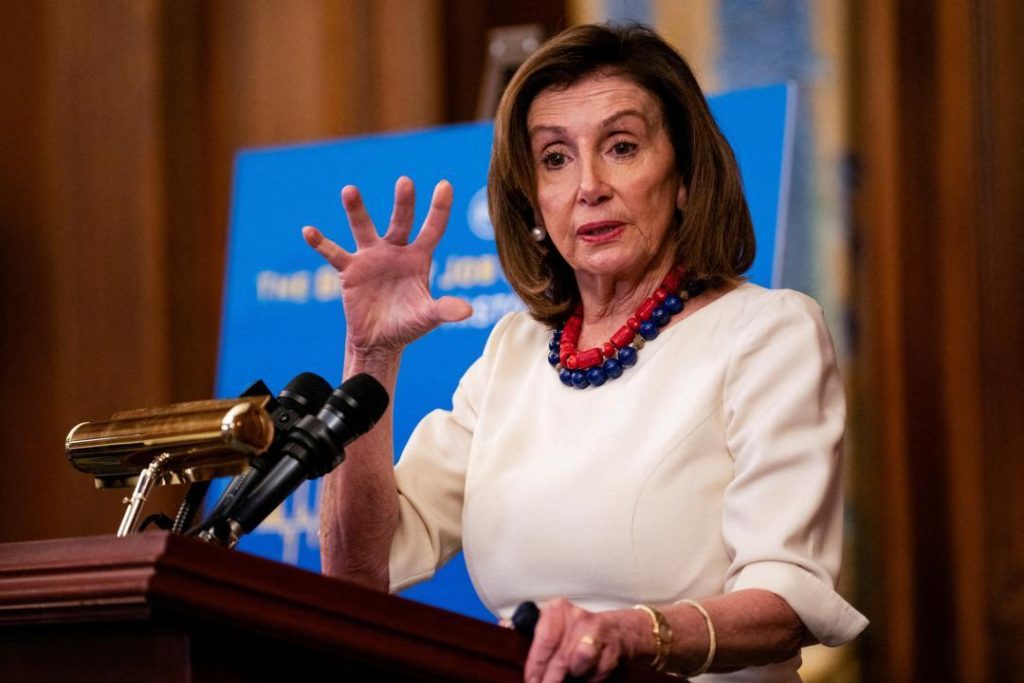
Title: What is PELOSI Act & why is it named after former US Speaker Nancy Pelosi?
The Preventing Elected Leaders from Owning Securities and Investments (PELOSI) Act, reintroduced by US Senator Josh Hawley, aims to prohibit lawmakers and their spouses from holding or dealing in stocks while holding office. This legislation seeks to address the long-standing concern of potential conflicts of interest among politicians, who often have access to sensitive information that could impact the stock market.
Interestingly, the PELOSI Act is named after Nancy Pelosi, the former US Speaker of the House of Representatives, who enjoyed significant stock market gains during her tenure in office. Pelosi’s husband, Paul Pelosi, made several savvy investments during her time as Speaker, resulting in a substantial increase in their net worth. This has led many to question whether her positions on certain issues, such as tax reform and financial regulations, were influenced by her personal financial interests.
The PELOSI Act is designed to prevent similar conflicts of interest from arising in the future. Under the proposed legislation, lawmakers would be allowed to invest in mutual funds (MFs), exchange-traded funds (ETFs), and Treasury bonds, but would be prohibited from owning individual stocks or engaging in any other form of securities trading. This would help to ensure that politicians are not able to use their positions to enrich themselves or their families at the expense of the public trust.
The need for this legislation is underscored by a 2020 report from the Government Accountability Office (GAO), which found that many lawmakers and their spouses own significant amounts of stock and other securities. The report noted that this creates the potential for conflicts of interest, as politicians may be influenced by their financial interests when making decisions on legislation and policy.
The PELOSI Act is not the first attempt to address this issue. In 2012, the Stop Trading on Congressional Knowledge Act (STOCK Act) was passed, which prohibited lawmakers and their staff from using non-public information for personal financial gain. However, the STOCK Act had several loopholes, including exemptions for investments in mutual funds and ETFs. The PELOSI Act aims to close these loopholes and provide a more comprehensive solution to the problem of conflicts of interest among politicians.
The reintroduction of the PELOSI Act comes as concerns about political corruption and the influence of money in politics continue to grow. The legislation has received bipartisan support, with Senator Hawley stating that it is “common sense” to require lawmakers to put the interests of the country above their own personal financial interests. If passed, the PELOSI Act would help to restore public trust in government and ensure that politicians are held to the highest ethical standards.
The PELOSI Act is not without controversy, however. Some critics have argued that it is too broad and could infringe on the rights of lawmakers to invest in their own retirement accounts. Others have suggested that the legislation is overly vague and could be open to interpretation.
Despite these concerns, the PELOSI Act is an important step towards addressing the issue of conflicts of interest among politicians. By prohibiting lawmakers and their spouses from holding or dealing in individual stocks, the legislation seeks to create a more level playing field and ensure that decisions are made based on the public interest, rather than personal financial gain.
As the PELOSI Act continues to make its way through Congress, it is essential that lawmakers and the public alike remain vigilant and demand transparency and accountability from our elected officials. The PELOSI Act is a step in the right direction, and it is up to us to ensure that it is implemented effectively and without loopholes.






